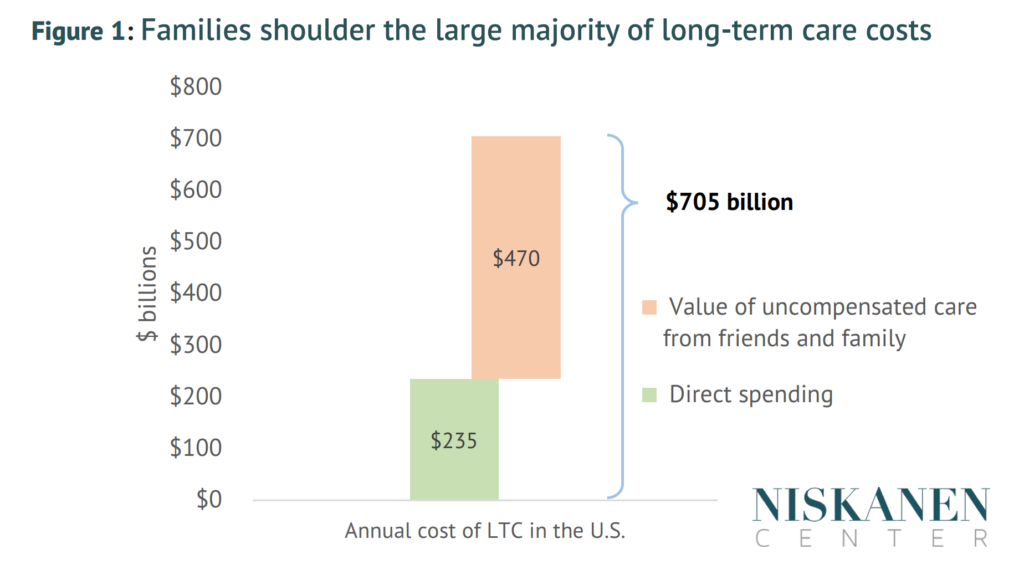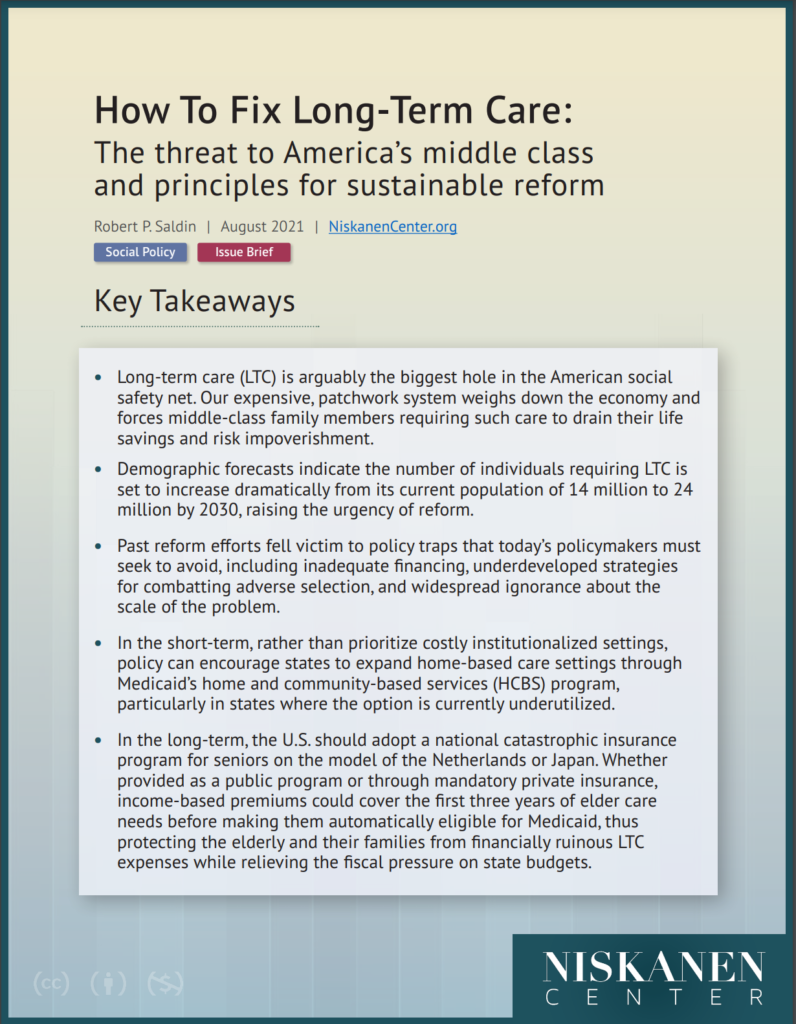Key Takeaways
- Long-term care (LTC) is arguably the biggest hole in the American social safety net. Our expensive, patchwork system weighs down the economy and forces middle-class family members requiring such care to drain their life savings and risk impoverishment.
- Demographic forecasts indicate the number of individuals requiring LTC is set to increase dramatically from its current population of 14 million to 24 million by 2030, raising the urgency of reform.
- Past reform efforts fell victim to policy traps that today’s policymakers must seek to avoid, including inadequate financing, underdeveloped strategies for combatting adverse selection, and widespread ignorance about the scale of the problem.
- In the short-term, rather than prioritize costly institutionalized settings, policy can encourage states to expand home-based care settings through Medicaid’s home and community-based services (HCBS) program, particularly in states where the option is currently underutilized.
- In the long-term, the U.S. should adopt a national catastrophic insurance program for seniors on the model of the Netherlands or Japan. Whether provided as a public program or through mandatory private insurance, income-based premiums could cover the first three years of elder care needs before making them automatically eligible for Medicaid, thus protecting the elderly and their families from financially ruinous LTC expenses while relieving the fiscal pressure on state budgets.
Click here to read the full report.
Figures:
Click to enlarge.

Robert Saldin is a Professor of Political Science at the University of Montana where he directs the Mansfield Ethics and Public Affairs program. He is the author of “When Bad Policy Makes Good Politics: Running the Numbers on Health Reform” (Oxford University Press, 2017), which was widely acclaimed as a skillful examination of the policymaking process that left America’s long-term care system in crisis.
In addition, Saldin is the author of “Never Trump” with Steven Teles (Oxford University Press, 2020), and “War, the American State, and Politics since 1898” (Cambridge University Press, 2011). Previously, Saldin was a Robert Wood Johnson Scholar in Health Policy Research at Harvard University.
